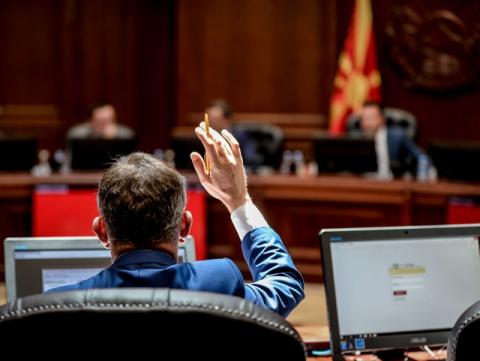Macedonia Vows to Reform Scandal-Hit Secret Police

Macedonia's secret police, UBK, will no longer have unchecked powers to place people under surveillance, and will no longer be misused for political purposes, under a set of bills that form part of EU-recommended reforms of the security sector.
The government said it has already adopted the proposed model for reforms, and had tasked the Interior Ministry to coordinate its implementation.
The ultimate goal, it said, was to "decentralize the UBK's unchecked power" and create a system of checks and balances that would prevent further misuses.
One of the key novelties is that the secret police will no longer be part of the Interior Ministry, but a separate independent agency that will be placed directly under government control.
Another novelty that the government insists will be key is that the UBK, following reforms, will stop working under the existing Law on Police; its work will instead be regulated by a separate law.
This law will take away the UBK's powers to put people under surveillance and arrest them, turning it from a repressive organ into a strictly preventive one, that will be tasked with handling national security.
This is the second step in the UBK's reforms, in practice.
In late November and early December, the government proposed and parliament adopted amendments to the Law on Surveillance aimed at ensuring that the secret police are no longer in charge of the technical process of surveillance.
The amendments envisaged the formation of a new Operational Technical Agency, OTA, which will be independent of the secret police and under much firmer civil control.
Its work will be monitored closely by the Prosecutor's Office.
The UBK will only be able to analyze the...
- Log in to post comments










